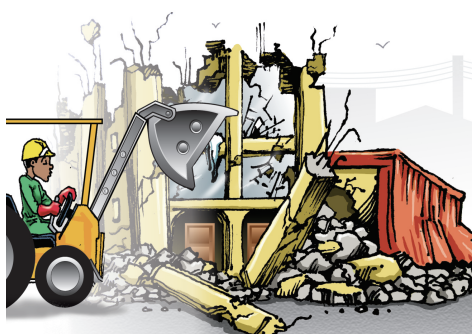
The spate of attacks on rural communities across the country has gradually brought the average citizen to the Hobbesian state where life has become nasty, brutish, and short. The level of insecurity is such that in several communities across the country socio-economic activities have been paralysed. People are being killed, kidnapped on the road, in business places, in farms, and in the comfort of their homes. With rural dwellers denied access to schools, farms, and other sources of legitimate livelihood, it is little surprise that Nigerians are reeling from soaring food prices.
To deal with this challenge, many states have over the years toughened their anti-kidnapping laws, ranging from demolition of property linked to kidnapping to life sentence and capital punishment. It is in this light that the Enugu State government recently activated provisions of its anti-kidnapping law which had been dormant since 2016. The law provides that “If the building or structure owned by the offender or any other person, who knows or ought to reasonably know that the building or structure is so being used for that purpose, the building or structure shall be demolished or forfeited to the state government.” The idea is to dismantle kidnappers’ dens or strongholds and ensure that the criminals do not enjoy proceeds of their crimes.
It is noteworthy that some of the demolished property were purpose-built for crime, as they have underground tunnels where they keep their victims or arms and ammunition. At Nkwubor Layout, Emene Nike, 17 firearms were recovered, namely eight AK47 rifles, seven pump action rifles, and two short guns, while two AK47 rifles were recovered at the Ogbeke Nike farm. Shrines, charms, and mini cannabis farms were also destroyed. These demolitions represent only a fraction of the state government’s war against insecurity.
Earlier in the year, Governor Peter Mbah proscribed the illegal sit-at-home order and mobilised security agencies and resources to wage a determined war against non-state actors and associated criminals, who previously had a field day killing security agents and hapless citizens, burning both government and private assets, forcing school children and students indoors, paralysing socioeconomic activities, and making life generally unbearable for the people. Equally noteworthy is the state’s huge investment in technology-enabled special police unit and vehicles known as the ‘Distress Response Squad’.
While we admit constitutional limitations suffered by the states in the war against insecurity, we nevertheless believe that the federating units can do more to clip the wings of criminal elements tormenting their states. That is what Governor Peter Mbah has demonstrated. But this is not to absolve the federal government of its responsibility, especially as all the security agencies are under its control. The nation’s security architecture needs to be reorganised, and better equipped. With helpless rural dwellers submitting to payment of taxes and levies just for their lives to be spared by non-state actors, the line between governance and anarchy has become blurred.
For years, governors have argued that each of the federating units (which the 36 states represent) should have control over their own security apparatus even when there will still be federal police. And the governors have very compelling reasons to ask for the decentralisation of the Nigeria Police Force as currently constituted. They, as the chief security officers of their states, bear huge responsibilities for the upkeep and maintenance of the police in the form of logistics, allowances, and other forms of assistance. But they have no control or power over police commands, whose men take orders from Abuja.
With the military being stretched over what ordinarily is not their constitutional duty, fresh ideas are needed to fight insecurity in the country. But like Enugu has demonstrated, there must also be the political will to tackle the menace.
END

Be the first to comment